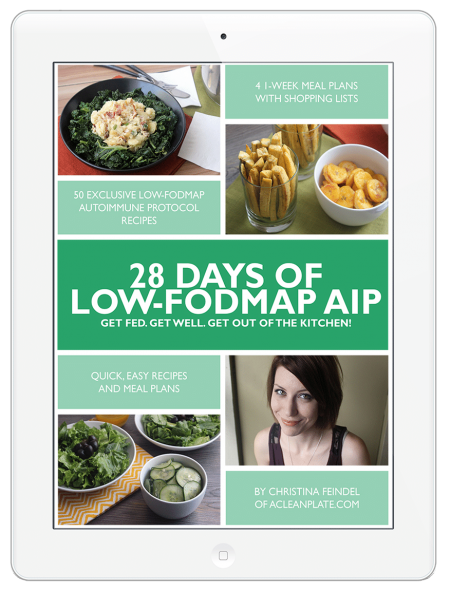How to Manage Stress

Stress sucks.
Well, I probably don’t have to tell you that. It derails just about everything. It makes you short-tempered with the kids. Irritable and unsatisfied at work. It not only causes food cravings, it can increase your susceptibility to infections, ramp up your autoimmune disease, and disrupt your sleep, hormones, and relationships. It’s also the single biggest contributor to cardiovascular disease. In fact, if you’re chronically stressed out, you’re probably not reaping the full benefits of the good things you do for yourself, like exercising and eating lots of veggies.
Hearing that probably stresses you out more. So how do we manage it? How do we get rid of all these stressors in our lives?
A stressor is anything that puts an undue burden on your body. We usually think of stress as an emotional or mental burden, like a fight with your partner or a looming deadline at work, but it can be physical too. Your body takes stress every time you get a cold, go without eating, exercise too intensely, get injured, stay up too late… you get the idea. Your body is working harder than it likes to, so it releases more cortisol (a.k.a. the stress hormone). This cues that “fight or flight” response you may have heard about. When confronted with a problem, our ancient ancestors could either fight it or run away from it. Cortisol is our body’s way of helping, giving our muscles and nerves a burst of energy at the expense of longer-term functions like digestion, sleep, and reproduction. This is why chronic stress causes indigestion, insomnia, and low libido. When your cortisol is high, your body doesn’t think you’re safe enough to eat, sleep, or reproduce. It’s waiting for you to escape the danger.
But in our modern world, that danger tends to be a vicious cycle. Something stresses you out, so you have a hard time sleeping, and poor sleep lowers your tolerance for stress, so now you’re battling cravings for sugar, and indulging causes blood sugar swings, which lowers your tolerance for stress, and your body is stressing out because it doesn’t have proper nutrients…. How the heck do you break that cycle?
We can’t control every stressor in our lives. But we can control a lot of the surrounding factors that could reduce the effect, either by mitigating the stressor or increasing our resilience to stress.
First, take a long, hard look at your daily life. What stressors do you encounter you could easily remove? Maybe the blast of your alarm clock scares you awake every morning. Maybe you skip breakfast and/or drink a lot of coffee to compensate for poor sleep (caffeine is a stressor!). Maybe you find yourself cussing at other drivers on your way to work. Brenda at the office wore that perfume again and now you’re going to be sneezing all day. Traffic on the way home is even worse and you still have to pick up groceries before you can make dinner. You’ve got about a thousand chores to do before you can go to bed.
These are all smaller-scale stressors that could be mitigated or removed. Use a gentler alarm. Make time for a healthy breakfast and cut back on the caffeine. Leave for work a little earlier to avoid traffic or practice affirmations and empathy on your commute to acknowledge that traffic is beyond your control and these other drivers are stuck in the exact same situation you are. Talk to Brenda about your sensitive nose and see if she’d be willing to try a milder scent. Use your weekends to get groceries and prepare meals for the week so you don’t have to worry about it on a busy weekday. And those chores? Prioritize any that absolutely have to get done and let go of the rest. Most things can wait a few more days until you’ve got a bit more time and energy on your hands. Better yet, see if someone can help.
Taking care of your physical and mental health in these small ways will help raise your tolerance for stress so that when a big stressor you can’t do anything about comes along, it doesn’t completely derail you. Big stressors are things like moving, having a job you don’t like or a job that is extremely demanding, relationship problems, raising kids, and chronic illness. Some of these are unavoidable. Others, like jobs and relationships, feel easier to stick with because ending them and having to look for something new sounds even more stressful. But don’t be afraid to acknowledge when something has become untenable: If there’s a good chance a change would dramatically improve your life in the long run, even if things would get worse in the short term, it’s usually worth considering.
If you can access it, therapy can be a helpful tool for learning to manage your mental and physical response to stress. Are the stressors in your life triggering something that needs to be addressed? Are there healthier ways you could respond to stress when it happens? Things like pausing to take deep breaths when you catch yourself in the middle of a stress meltdown aren’t a cure, but having the self-awareness to take a break from a situation and process what’s happening in a way that is supportive and gentle to yourself is miles better than raging.
Tips for Reducing Stress
- Avoid caffeine, sugar, and alcohol. They’re all stressors that will naturally raise your cortisol.
- Eat a healthy diet high in vegetables, fruit, and seafood, making sure to get plenty of omega-3 fatty acids. A nourished body is better-equipped to respond to stress!
- Spend time outside, getting plenty of non-burning sun exposure early in the day. Especially when the weather’s nice. It will improve your mood.
- Engage in moderate, low-strain exercise like walking, swimming, and yoga. Don’t push your body too far, but do put it in motion every day, even if its only a few minutes.
- Make time for something fun. The more you can smile and laugh in a day, the better! Whether it’s playing with your kids, watching a comedy special with your partner, having a game night with friends, or reading a book, try to include something every day that you can look forward to and get positive emotions out of. Laughing is great stress relief.
- Poor sleep increases stress, so practice good sleep hygiene. Keep your bedroom dark and cool and only for sleeping. Avoid bright lights near bedtime, even from computer and mobile screens. If you have allergies, change your sheets frequently, invest in a hypoallergenic pillow and mattress pad, and leave the bed unmade. Go to bed and wake up at roughly the same time every day, aiming for at least 8 hours of sleep.
- It’s okay to ask for help. Whether it’s with household chores, babysitting so you can have a night to yourself, bringing a friend or family member to a doctor’s visit you’ve been worried about, or a bit of a loan so you can finally fix the AC, don’t be afraid to reach out. The world is full of kind strangers and chances are good you’re already acquainted with some of them!
- Spend the hour or so before bed relaxing and mentally preparing for sleep. This is a great time to meditate on the things you’re grateful for in life. Believe it or not, meditation is a great stress reliever–and it will also increase your resilience to future stress!
Looking for Low-FODMAP recipes?
28 Days of Low-FODMAP AIP combines IBS and autoimmune diets in a 28-day meal plan designed to jump start and simplify this often-challenging duo. But wait: This meal plan includes 50 exclusive low-FODMAP recipes you won’t find anywhere else, with dishes like Chicken Vindalo, Jambalaya, and crispy, crunchy Tostones!

